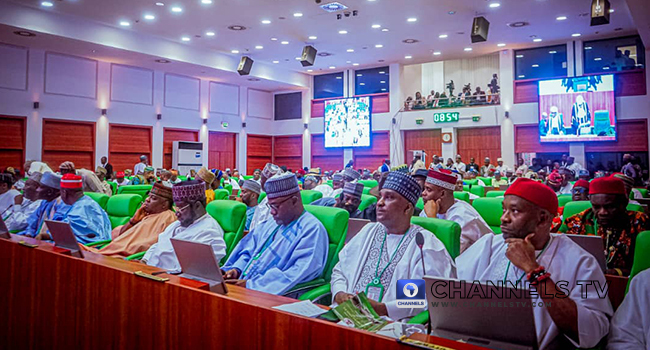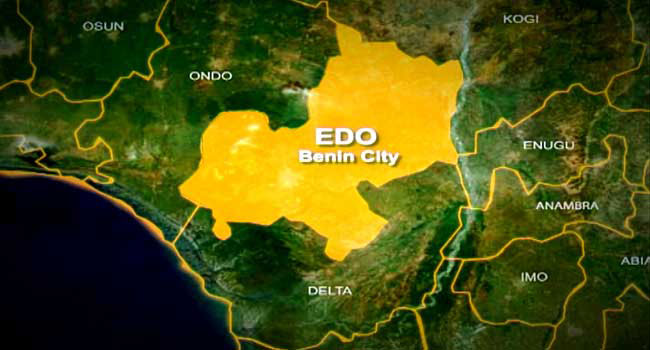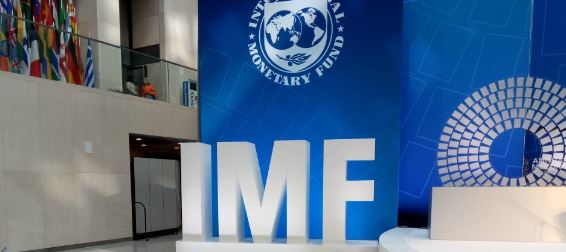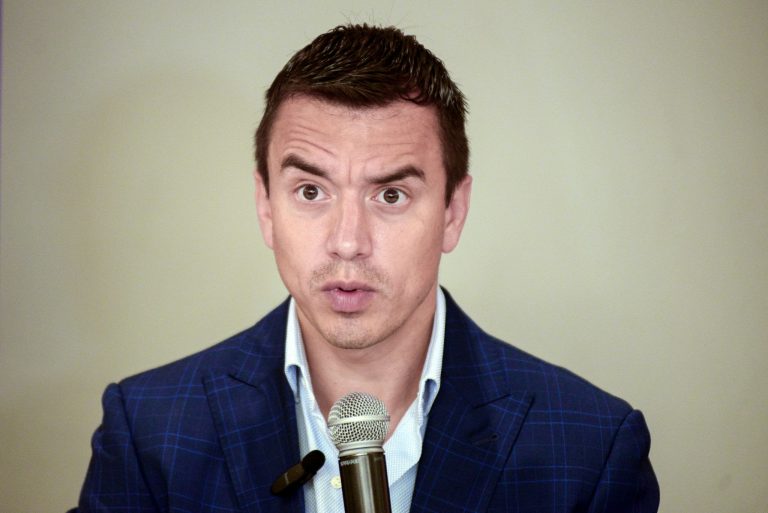The International Monetary Fund has said the naira is currently under pressure and Nigeria is free to seek loan from the Fund to stabilise the currency if it considers a good option. The Washington-based lender however noted that recent exchange reforms and other steps taken by the Nigerian authorities were in order. It also expressed support for Olayemi Cardoso-led Central Bank of Nigeria’s last week’s decision to halt the eight-year foreign exchange ban on cement, rice, poultry products and 40 other items. The past administration of the CBN had imposed the forex ban in 2015. The made this known at the World Bank Group/International Monetary Fund Meeting in Marrakech, Morocco. IMF said inflation in Nigeria was till high at 26 per cent in August while the naira continued to be under pressure. The local currency, which fell from about 450/dollar to an average of 760/dollar following the exchange reforms of the President Bola Tinubu, has continued to drop at the parallel market. The local currency plunged to 1045/dollar on Thursday. While reiterating the need to tighten monetary policy by raising the Monetary Policy Rate and mopping up excess naira liquidity, the bank said foreign exchange market confidence could benefit from more clarity on Central Bank of Nigeria dollar obligations. A JP Morgan report put the Central Bank of Nigeria forward contract obligations at $6.8bn but stakeholders said the amount could be more. In a response to emailed questions by The PUNCH on whether the Fund is open to giving Nigeria a dollar loan to support the naira, the Fund said, ‘Nigeria is facing high inflation of 26 percent year-on-year in August and pressure on the naira. In June, the authorities unified the different official exchange rate windows. This was a welcome step as will help to strengthen the functioning of the foreign exchange market. We also welcome the CBN’s recent decision to lift the ban on the 43 items previously restricted from accessing foreign exchange from the official window. This is a positive step in the direction of a shift to a market-determined exchange rate regime.” It further stated that “the authorities should urgently tighten monetary policy and take measures to ensure markets maintain full confidence in the Central Bank of Nigeria. Tightening monetary policy will have to include raising the Monetary Policy Rate and mopping up excess naira liquidity. Market confidence will benefit from more clarity on Central Bank of Nigeria dollar obligations.” On the possibility of a currency support loan, it said, “As every member country of the IMF, Nigeria can seek IMF financing if they see this as helpful to address external imbalances. The Nigerian authorities have not approached the IMF with a request for financing.” Meanwhile, the IMF has said it is confident the new CBN governor, Cardoso, and the new Minister of Finance and Coordinating Minister of the Economy, Wale Edun, have the capacity to take right decisions to boost the fortunes of the economy. Edun had during the World Bank/IMF meeting listed a number of fiscal initiatives aimed at collecting more tax revenue and reducing waivers to boost economic growth. Also, Cardoso had listed plans to stabilise the market and navigate the country through the current turbulent economic challenges. The CBN governor said the new leadership team would review foreign exchange market policies, the central bank corporate governance practices and monetary policies to reposition the apex bank to achieve its core mandates. Already, he said the new team members, who resumed fully at the bank a few weeks ago following their confirmation by the National Assembly, was currently carrying out a comprehensive assessment of the challenges facing the central bank. According to him, the ongoing assessment of the bank will lead to tweaking or jettisoning of some policies as part of a wide-ranging programme to reform the bank as a catalyst for economic growth and development. In a document titled, “Preliminary assessment of challenges facing the Central Bank of Nigeria”, Cardoso outlined the challenges facing the CBN and introduced high-level proposals aimed at addressing reformation challenges. He also examined the role of a refocused central bank in supporting the economic agenda of President Bola Tinubu. He also harped on what should be put in place to revert to evidence-based monetary policies, including the discontinuation of unorthodox monetary policies and foreign currency management, unorthodox use of Ways and Means spending, and development of control limits in the use of Ways and Means in financing public sector deficit.On the backlog of FX demand, Cardoso emphasised the need for creative financing options for clearing the short to medium-term backlog. The new central governor also plans to place a limit on the CBN’s fiscal side interventions, while also proposing responses to addressing inflation and price stability issues. Cardoso said, “These problem statements need in-depth review by the new Central Bank leadership team to determine what mechanisms are currently working, what can be tweaked or dispensed with and what new tools need to be introduced” On how the CBN can be refocused to support economic growth, he said, “The economic policy proposals of the administration identify a set of fiscal reforms and growth targets that will achieve $1tn GDP within eight years. In reviewing selected BRICS and MINT countries, with large populations and similar developmental characteristics as Nigeria, it is interesting to identify macro-economic indices that point to Nigeria’s economic trajectory, given the faithful implementation of the proposed economic reforms. In economies bigger than $1tn, these indicators include moderate inflation, sizable foreign reserves, and the capacity to quickly rebound from a cyclical economic downturn.”














